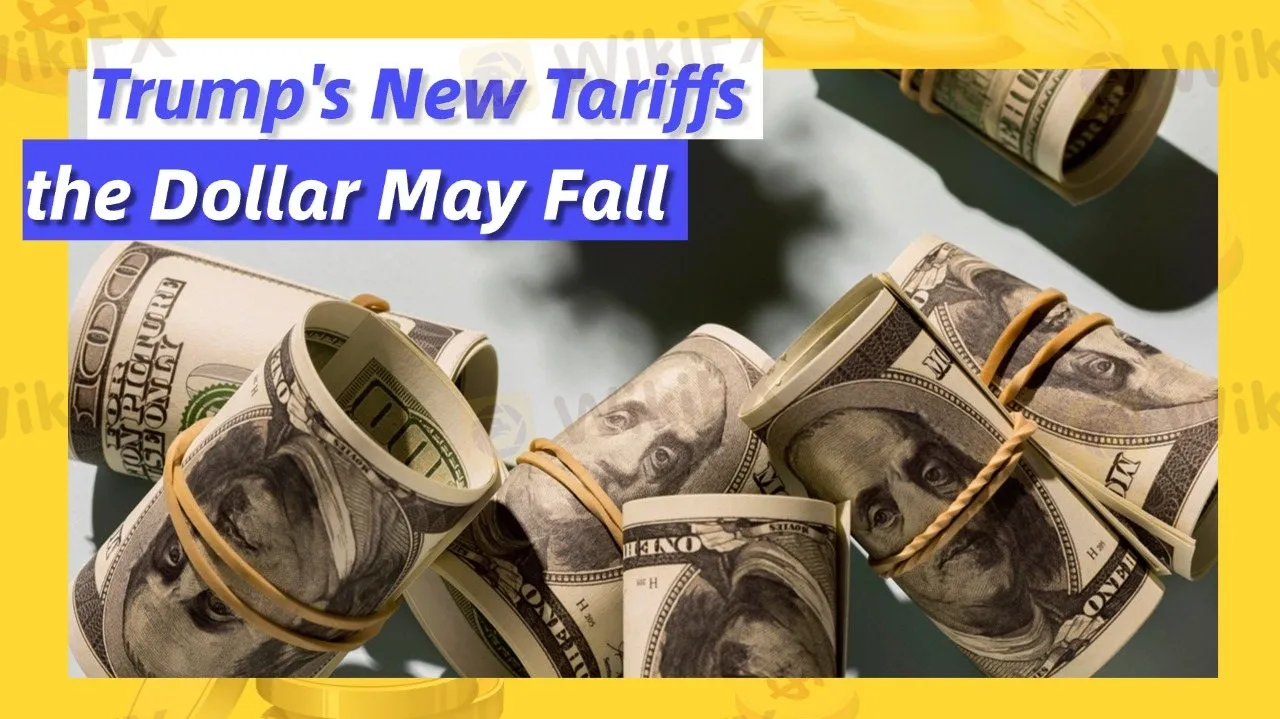简体中文
繁體中文
English
Pусский
日本語
ภาษาไทย
Tiếng Việt
Bahasa Indonesia
Español
हिन्दी
Filippiiniläinen
Français
Deutsch
Português
Türkçe
한국어
العربية
Trump's new tariffs, the dollar may fall
Abstract:As Trump nears taking office, the key question is whether these new tariffs will be implemented, and whether the dollar can continue to rise.

During his campaign, Trump proposed a 10-20% tariff on all imported goods, with a 60% tariff specifically on Chinese products.
Recent reports indicate that Trumps team is working on a new tariff plan, aiming to impose import duties on certain goods from around the world. This plan is different from the “universal tariffs” that Trump suggested during his campaign, and the specific goods or industries that will be affected have not yet been disclosed.
The tariff policy Trump proposed during the election primarily aimed to protect U.S. domestic manufacturing, reducing competition from low-priced imports. This policy was closely tied to Trumps campaign promises and helped garner support from voters. Additionally, the revenue generated from tariffs could offset potential tax losses from other tax cuts.

However, Trump has denied reducing the intensity of the new tariffs, leading to a drop in the dollar during volatile trading, with the dollar index falling by 0.7% to 108.23.
It remains unclear whether Trump will change his mind, and the tariff policy is still being adjusted, with no final decisions made yet.
One reason for considering adjustments to the “universal tariff” is that such a policy could provoke a strong reaction from U.S. consumers and businesses. If prices on everyday items like food and consumer electronics rise, it could lead to public dissatisfaction.
Trump's team is clearly aware that widespread tariffs could trigger retaliation from international trade partners, further intensifying global supply chain uncertainty and increasing costs for U.S. businesses and consumers.

Disclaimer:
The views in this article only represent the author's personal views, and do not constitute investment advice on this platform. This platform does not guarantee the accuracy, completeness and timeliness of the information in the article, and will not be liable for any loss caused by the use of or reliance on the information in the article.
Read more

Why Trade Agreements Matter to Nations
In today’s interconnected world, trade agreements serve as the foundation for stable and predictable international commerce.

Trade Fights Are Heating Up—What Happens Next?
Global financial markets have become increasingly reactive to even minor developments in international trade talks.

Juno Markets Upgrades to FYNXT PAMM
Juno Markets has successfully upgraded its managed account infrastructure by integrating FYNXT’s Percent Allocation Management Module (PAMM) system.

Italy’s CONSOB Blocks Sites of ITradingFX and NEX TRADE in Latest Crackdown
Italy’s Companies and Exchange Commission (CONSOB) has ordered Internet service providers to block access to nine unauthorized investment websites, including “ITradingFX” and “NEX TRADE,” as part of its ongoing effort to curb abusive financial services Consob.
WikiFX Broker
Latest News
Five UK Financial Firms Collapse, FSCS Offers Support for Affected Clients
Why Trade Agreements Matter to Nations
Non-Existent Online Scheme Took Away RM580,000
RM15 Million Gone in Fake Investment Scam
Think Scams Won’t Happen to You? That’s Exactly What Scammers Count On
Crypto Traders Hit by Scam Using Fake Regulatory Documents, MFSA Cautions
Trade Fights Are Heating Up—What Happens Next?
Juno Markets Upgrades to FYNXT PAMM
Beware of New Scam Tactics Lurking on WhatsApp!!
Italy’s CONSOB Blocks Sites of ITradingFX and NEX TRADE in Latest Crackdown
Currency Calculator


